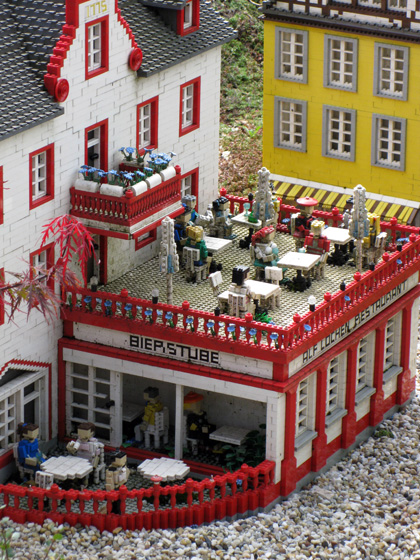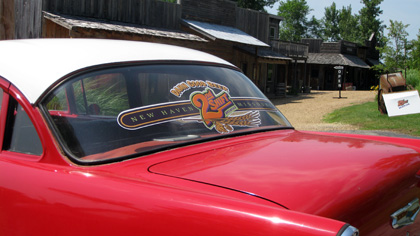Call it the six degrees of beer. Some days connections seem particularly easy to make.
What beer style would this be? “Yes, it’s true that a lot of rosés—too many, in fact—are insipid. Vacuous. Tasteless. As a category, it’s weak.” Despite the fact he writes for Wine Spectator, I think Matt Kramer asks really good questions. Like this one, respectfully edited, in his column about rosé wines.
“Allow me to take this one step further and ask: Do we now have too many wines [replace with the beverages of your choice] that demand involvement? Do you really want to listen only to symphonies? Is anything less than a symphonic blast of flavor and power somehow intrinsically lesser?”
Advice for the ‘extreme’ brewer?
“If you don’t have those moments where you go too far, then you’re probably not going far enough.” Vanity Fair profiles Andrew Mason, no that Andrew Mason but the founder of Groupon. Where do his ideas come from? He makes Sam Calagione look like he’s on center. How do you master the voice of the Groupon narrator? Lots in this long, long story so in case you don’t make it to the end, the final quote: “I love the idea of dying doing something that nobody cares about. I think that’s a cool idea.”
Mad Dog in the Fog remodeled?
I’m not sure how I feel about this. SF Weekly put the Dog among San Francisco’s “Top Five British Pubs” makes the list but notes “The recent remodel is controversial; it’s less of a dive.” That might not be good. And calling a pub in SF “British” is a little like calling a beer brewed in the U.S. “Belgian,” but that’s a different conversation.
Who do you trust?
Mike Veseth — author of the excellent book, Wine Wars: The Curse of the Blue Nun, The Miracle of Two Buck Chuck, and the Revenge of the Terroirists,” that I need to review — reports from the meetings of the American Association of Wine Economists in Bolzano, Italy. More proof that wine judges at major competitions are not very consistent. What do you think a similar study related to beer judging would show? And would it matter? Because Veseth provides a bottom line: “The research presented in Bolzano suggests that there are limits to how much we do trust and how much we should trust wine critics and judges. The power of critics to shape the world of wine may be overstated or, as Andrew Jefford notes in the current issue of Decanter, simply over-generalized. ‘Opinion-formers are highly significant — for a tiny segment of the wine-drinking population.’ he writes. ‘They remain irrelevant for most drinkers.'”
Blogging tip of the week
If blogging is to be a conversation then readers need to be able to comment. Insisting that comments be approved kills the conversation. Yes, spammers will show up, and as smart at Akismet is, occasionally they’ll sneak a comment through (in June that happened 25 times here, while Akismet shot down 45,351 attempts). But those are usually on old, seldom visited posts and pretty easy to spot; a lot easier that checking every few minutes to see if there is a new comment that needs approving. Rather than picking on anybody in particular I’ll also add it seems particularly strange to broadcast a question via Twitter, then ask readers to jump through assorted hoops to leave a comment and see that comment languish for minutes, hours, days. End of conversation.

